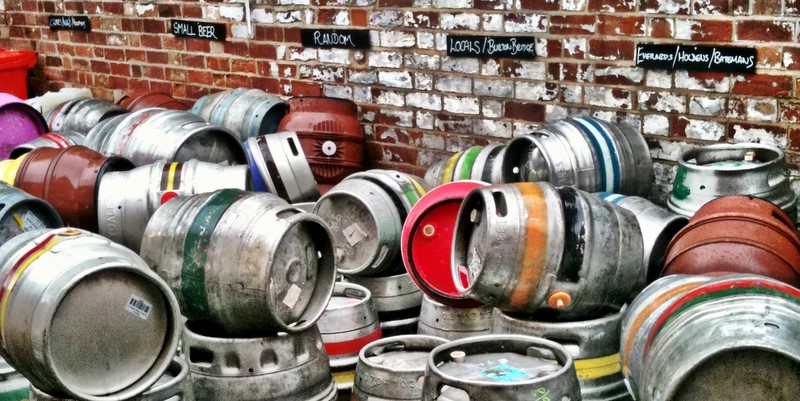
August 5, 2013, by ICCSR
Beer and Corporate Social Responsibility
The occasion of International Beer Day prompts me to think aloud on this one … and thinking aloud is one of the (usually positive) features of English pubs famous for their distinctive bitters, ales and stouts… which may or may not be associated with Pliny the Elder’s motto ‘in vino veritas’.
By virtue of the phrase ‘cakes and ale’, beer has a place in governance of corporate responsibility. In 1883 Lord Bowen (Hutton Vs West Cork Railway) ruled that ’The law does not say that there are to be no cakes and ale, but there are to be no cakes and ale except such as are required for the benefit of the company’ (a condition which has subsequently been loosened in US and UK law).
My main concern is not so much with ale and CSR in the context of what is ‘socially invested’ bv the company, but more about issues of beer’s effects.
The history of corporate philanthropy reveals that some nineteenth century workers’ villages created through industrial paternalism contained pubs and others didn’t… and both decisions would have been grounded in the respective individual or company paternalist’s understandings of social responsibility. Some, famously the Quaker families, believed that drink was injurious, whilst others saw beer as a social lubricant and even health-giving (in the absence of medical support they may have invoked Saint Paul’s remedy for stomach ache: ‘a little wine’).
Beer drinking has been at the heart of many British social festivities (from wassailing to ‘first footing’, though the latter also involves whisky!). It is certainly part and parcel of my family gatherings as well as my times of relaxation with friends and colleagues. ANZAC Day in Australia is conventionally associated with drinking beer, and recently breweries have been criticised for their overly close association with the event. Alcohol has been blamed for ruining individual lives and for domestic violence (no coincidence then that the 19th Salvation Army and women’s movement were both associated with temperance).
So, despite its social connotations, beer has been described as a ‘risky product’ in as much as the consumers and their families and neighbours bear risks of inappropriate consumption. The risks relate to livelihoods, livers, hearts, brains, relationships and physical and psychological harm. ‘Inappropriate’ is usually a by-word for excessive, though the excesses vary by context, (e.g. whether one is driving a car, {boat or plane}, is pregnant, or is male or female). Although less frequently discussed there are probably genetic/ socialisation contexts too.
Accepting that there are some risks, directly or indirectly, to us all what is to be done to this product which is cultural aligned with so much that is positive?
Regulation of drinking has usually proved difficult. Prohibition in the USA spawned yet other crimes … and created markets for more unsafe concoctions than the previously legally produced beer. The prospect of increasing prices to deter binge drinkers will probably not inhibit their alcoholic consumption but would hurt law-abiding and responsible but financially poor drinkers. We await evidence from those countries which have required cigarettes to be removed from public display and to have branding removed from their packaging on the impacts of these regulations. Will these actions remove or increase the interest and consumption of young people in the products? Most regulation is insensitive to the contexts alluded to above as well as to the liberal adage that, ‘if I want to get “hammered” by drinking legally produced beer, why shouldn’t I (assuming that this harms no-one else)’?
Labelling and associated information-based health campaigns are probably helpful to those who want to be helped. They can point to contextual factors in a sensitive fashion. Hence the production and marketing of lower alcohol products may make commercial as well as health sense. A number of alcohol, and particularly beer, companies appear to be thinking in these terms. The impacts of such ventures in corporate social responsibility will make for interesting research.
It is tempting to close this ‘thinking aloud’ by saying, ‘I’m just off for a swift pint’, but as it is approaching 3.00pm the reality is that it is time for a cup of tea. Heck, do you remember that politician whose health problem was attributed to excessive tea drinking?
By Professor Jeremy Moon, Director of the ICCSR, Nottingham University Business School .
Image taken by Dave Rutt and reproduced under creative commons license (CC BY-NC-SA 2.0) source: http://www.flickr.com/photos/rutty/6086343510/in/photostream/
No comments yet, fill out a comment to be the first

Leave a Reply